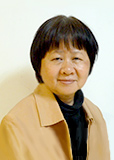
李秀琴(1948生),民族音樂學者。出生於高雄。受西式音樂薰陶,鋼琴事師陳盤安,音樂理論受劉德義、史惟亮啟蒙。1991年獲柏林自由大學民族音樂學博士。留德期間,受到嚴格學術訓練,對於道教、法教及南島語族音樂,深具研究心得。長期關注世界音樂,田調遍及菲律賓、印尼、馬來西亞及中國雲南、貴州、廣西少數民族地區。1980-1990年代間,擁有豐富的國際學術經驗,例如任柏林國際傳統音樂研究所研究員,柏林洪堡大學與柏林自由大學客座,菲律賓亞洲宗教儀式與音樂學校及研究所任教,更是德文音樂辭典MGG(《音樂的歷史與現狀》)〈臺灣〉辭條撰寫人。1998年回臺,任教於國立臺北師範學院(今國立臺北教育大學),2003-2014年專任於國立臺北藝術大學,並執行多項與道教音樂相關之重要研究計畫。
Lee schu-chi, born in 1948 in Kaohsiung, is a musicologist and ethonomusicologist. Lee was trained in western music but has devoted herself to studying Taoism and Fa-Jiao music. With a PhD in Musicology and Ethnomusicology from Freie Universität Berlin and having stayed for a long time in Germany, Lee has abundant academic and field-study experiences that span across fields like ethnomusicology, Taoism and Fa-Jiao music, Filipino music and Austronesian music. Lee has a long-term research interest in world music and had been invited to write an entry on Taiwan for a German Music Dictionary.(MGG, Die Musik in Geschichte und Gegenwart ).
